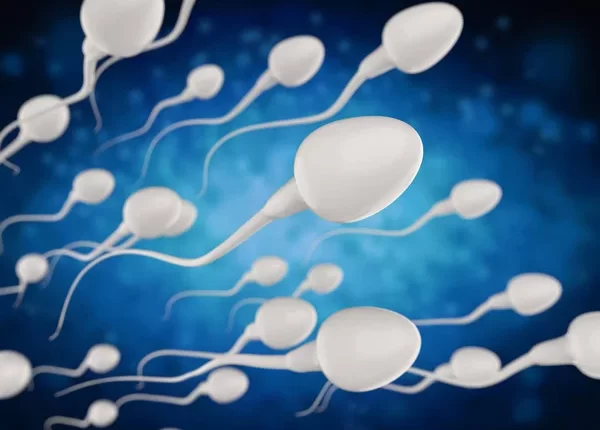Cylicins Found to be Crucial for Sperm Formation and Fertility – A groundbreaking study published in the esteemed journal eLife unveiled the critical role of cylicins in sperm development and fertility, shedding light on a crucial aspect of human reproduction. Cylicins, integral components of the sperm cytoskeleton, play a fundamental role in orchestrating acrosome formation, a specialized cap-like structure that adorns the sperm head. This intricate structure harbors enzymes that empower the sperm to penetrate the egg, a pivotal step in achieving fertilization.
Employing the innovative CRISPR/Cas9 gene editing technique, researchers meticulously tailored mice lacking either cylicin 1 or cylicin 2. Strikingly, mice deficient in cylicin 1 demonstrated subfertility, while those lacking both cylicin 1 and cylicin 2 were rendered completely infertile. This compelling evidence unequivocally underscores the indispensability of cylicins for male fertility.
Unveiling the broader implications of their findings, the research team meticulously examined a cohort of over 2030 men grappling with reproductive challenges. Through comprehensive genetic analysis, they revealed that some of these men harbored mutations in the CYLC1 or CYLC2 genes. These mutations were poignantly linked to sperm morphological defects and infertility.
This landmark study provides robust evidence that cylicins are indispensable for sperm development and fertility in both mice and humans. Their pivotal role in acrosome formation and sperm function highlights their profound impact on the intricate process of fertilization. Further research is warranted to unravel the precise mechanisms underpinning cylicin function and pave the way for novel therapeutic strategies to address male infertility. Unveiling the intricacies of cylicin function holds immense promise for developing interventions that could alleviate the global burden of infertility and restore hope to those yearning for parenthood.
To further delve into the significance of cylicins, it’s crucial to appreciate their intricate interplay with other proteins involved in sperm development. Cylicins interact with CCIN, another crucial protein, to form a “molecular glue” that anchors the acrosome to the nuclear envelope, ensuring its stability during acrosome biogenesis. This delicate balance is essential for sperm maturation and function.
Moreover, cylicins play a pivotal role in maintaining the integrity of the perinuclear theca, a specialized structure that surrounds the sperm nucleus. This structure provides structural support and serves as a conduit for protein transport during spermiogenesis, the intricate process of sperm maturation. Cylicin deficiency disrupts this intricate network, leading to morphological defects and impaired sperm function.
The study’s findings extend beyond the realm of basic science, holding immense potential for clinical applications. Genetic analysis of CYLC1 and CYLC2 genes in individuals with infertility could aid in diagnosis and guide personalized treatment strategies. Additionally, developing therapies that target cylicins could revolutionize the treatment of male infertility, offering hope to millions of couples struggling to conceive.
The findings of this study are important because they provide new insights into the role of cylicins in sperm development and fertility. This information could potentially lead to the development of new treatments for male infertility.
Here are some of the key findings of the study:
- Cylicins are essential for the formation of the acrosome.
- Mice that lack cylicin 1 are subfertile, while mice that lack both cylicin 1 and cylicin 2 are completely infertile.
- Mutations in CYLC1 and CYLC2 can cause infertility in humans.
In conclusion, the study on cylicins represents a significant step forward in understanding the complexities of sperm development and fertility. Their crucial role in acrosome formation, sperm morphology, and perinuclear theca integrity underscores their potential as therapeutic targets for male infertility. Further research is warranted to elucidate the precise mechanisms by which cylicins exert their effects and pave the way for novel interventions to address this global health concern. Study source
Continue to check our website soundhealthandlastingwealth.com for more articles of this kind. And, please use our comment section as well, we would love to hear from you.








